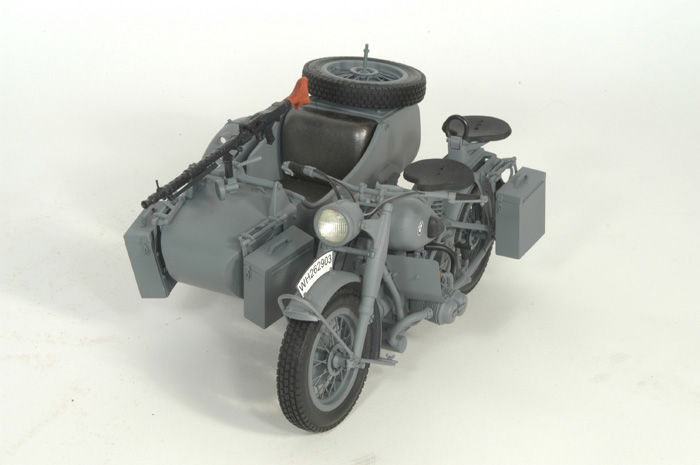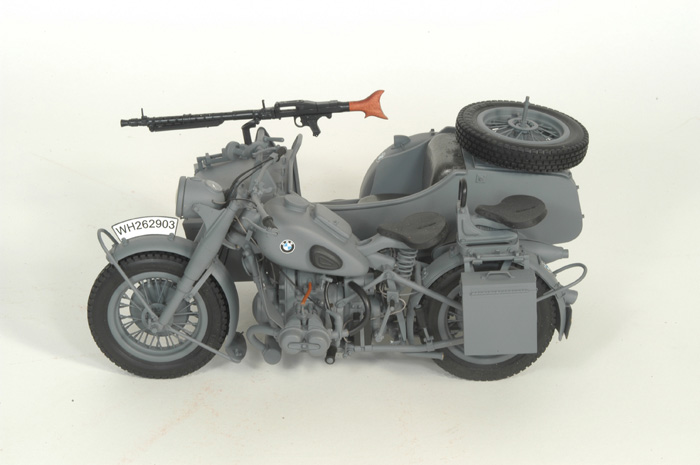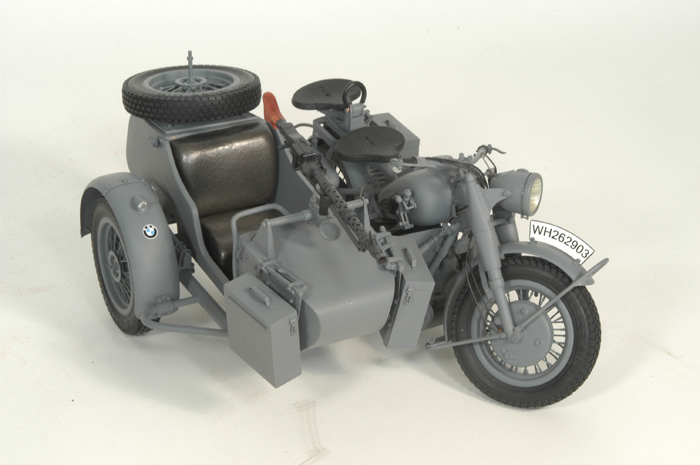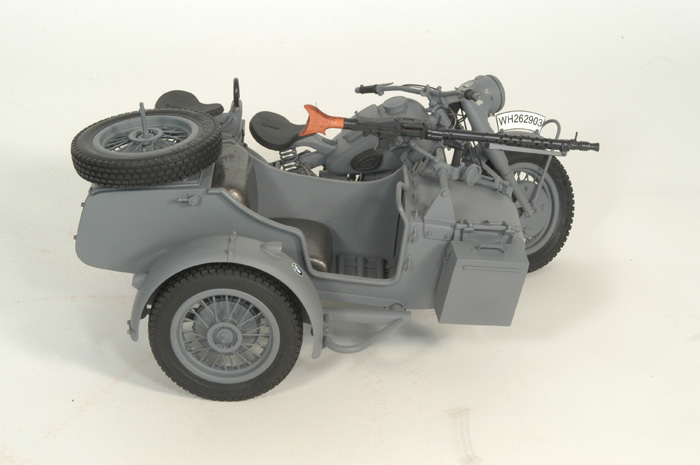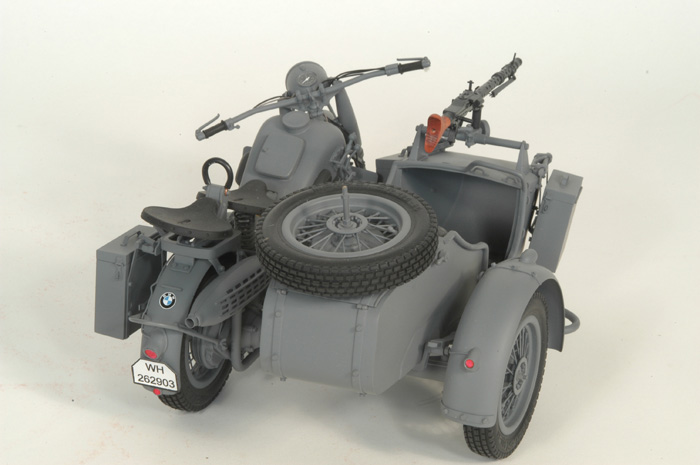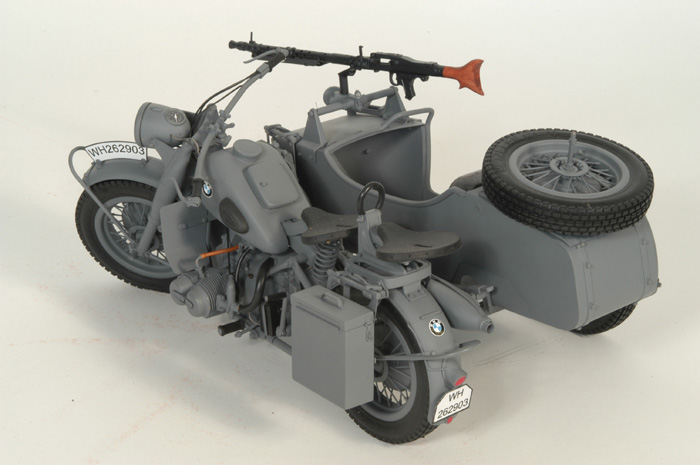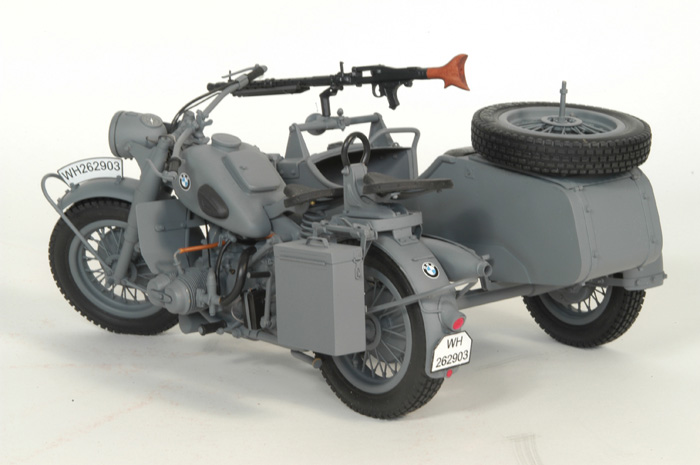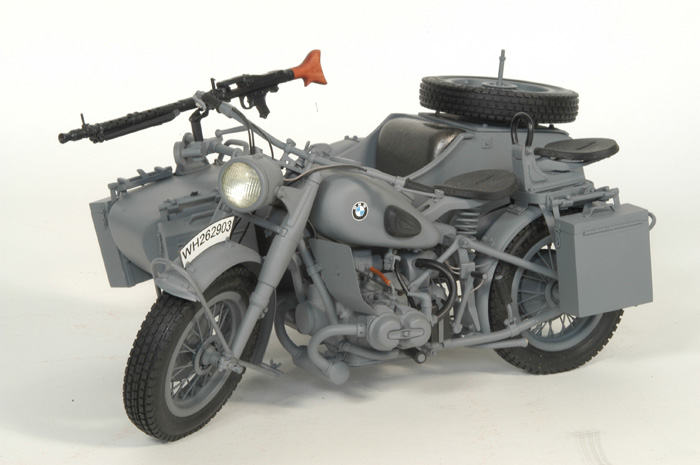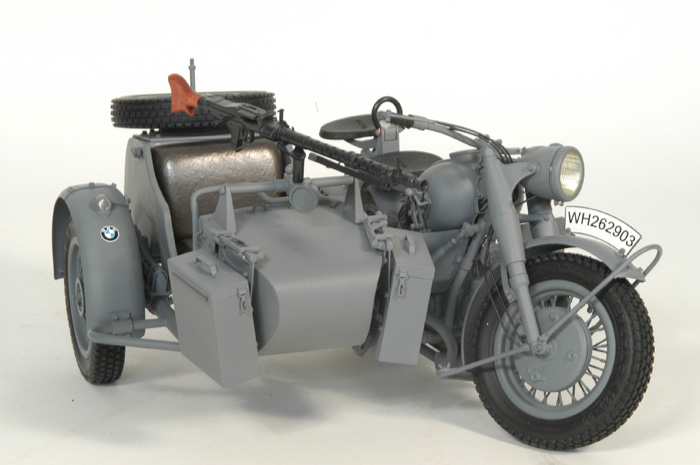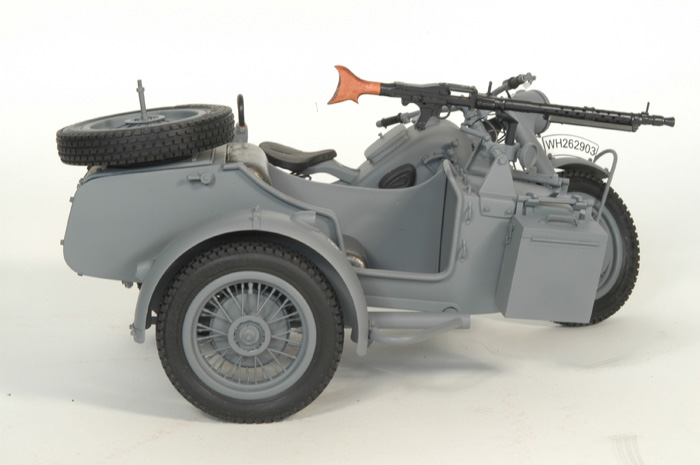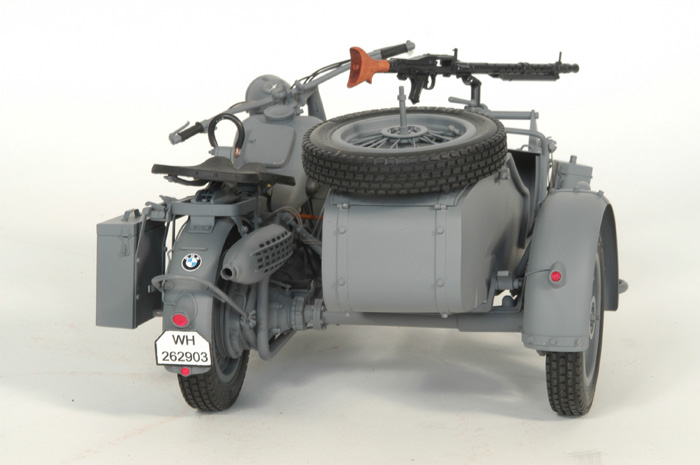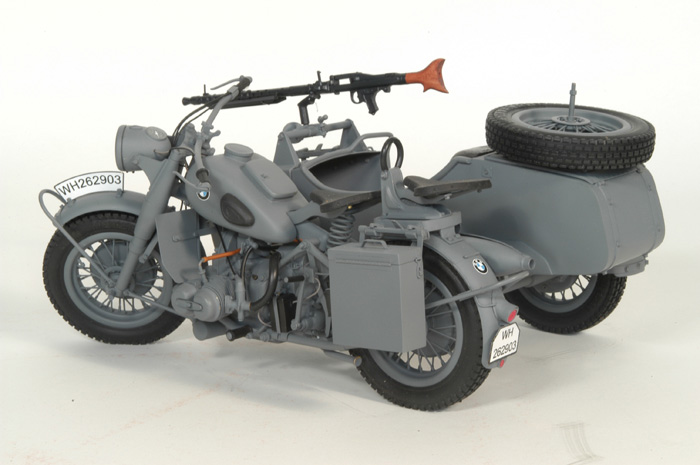BMW R75
BMW R75 Military Motorcycle
- Scale: 1:8
- Release: 2003
- Limited Edition: 50
- Model Size: 12”L x 9”W x 5.5”H
- Base Type: Black Walnut
- Base/Case Size: 19”L x 10”Wx 8”H
- Availability: Sold Out
BMW R75 Military Motorcycle
BMW was already producing a number of popular and highly effective motorcycles, and developed the R75 in response to a request from the German army for a machine more capable in off-road conditions. BMW developed a technically advanced machine in which the third sidecar wheel was driven from an axle connected to the rear wheel of the motorcycle, effectively making it a three-wheeled vehicle. Fitted with a locking differential and selectable road and off-road gear ratios the R75 was highly maneuverable and capable of negotiating most surfaces. It was even fitted with a reverse gear.
The BMW R75 and its rival the Zündapp KS 750 were both widely used by the Wehrmacht in Russia and North Africa, though after a period of evaluation it became clear that the Zündapp was the superior machine. In August, 1942 Zündapp and BMW, on the urging of the Army, agreed upon standardization of parts for both machines, with a view of eventually creating a Zündapp-BMW hybrid (designated the BW 43), in which a BMW 286/1 sidecar would be grafted onto a Zündapp KS 750 motorcycle. They also agreed that the manufacture of the R75 would cease once production reached 20,200 units, and after that point BMW and Zündapp would only produce the Zündapp-BMW machine, manufacturing 20,000 each year. Since the target of 20,200 BMW R75’s was not reached, it remained in production until the Eisenach factory was so badly damaged by Allied bombing that production ceased in 1944.
However, the standardization meant machines that were produced by BMW and Zündapp used 70% of the same components. This simplifies the supply of spare parts for these vehicles, many of which are still in the hands of historic motorcycle enthusiasts today. In 1954 a small number of modified R75’s was produced at Eisenach (then in Soviet-controlled East Germany) for testing under the designation AWO 700, but were not put into full production.
These vehicles are still highly desirable as collector’s items because of their complex and durable technology, and are correspondingly expensive. A well-restored R75 can be still used for everyday purposes, on or off-road without problems.
